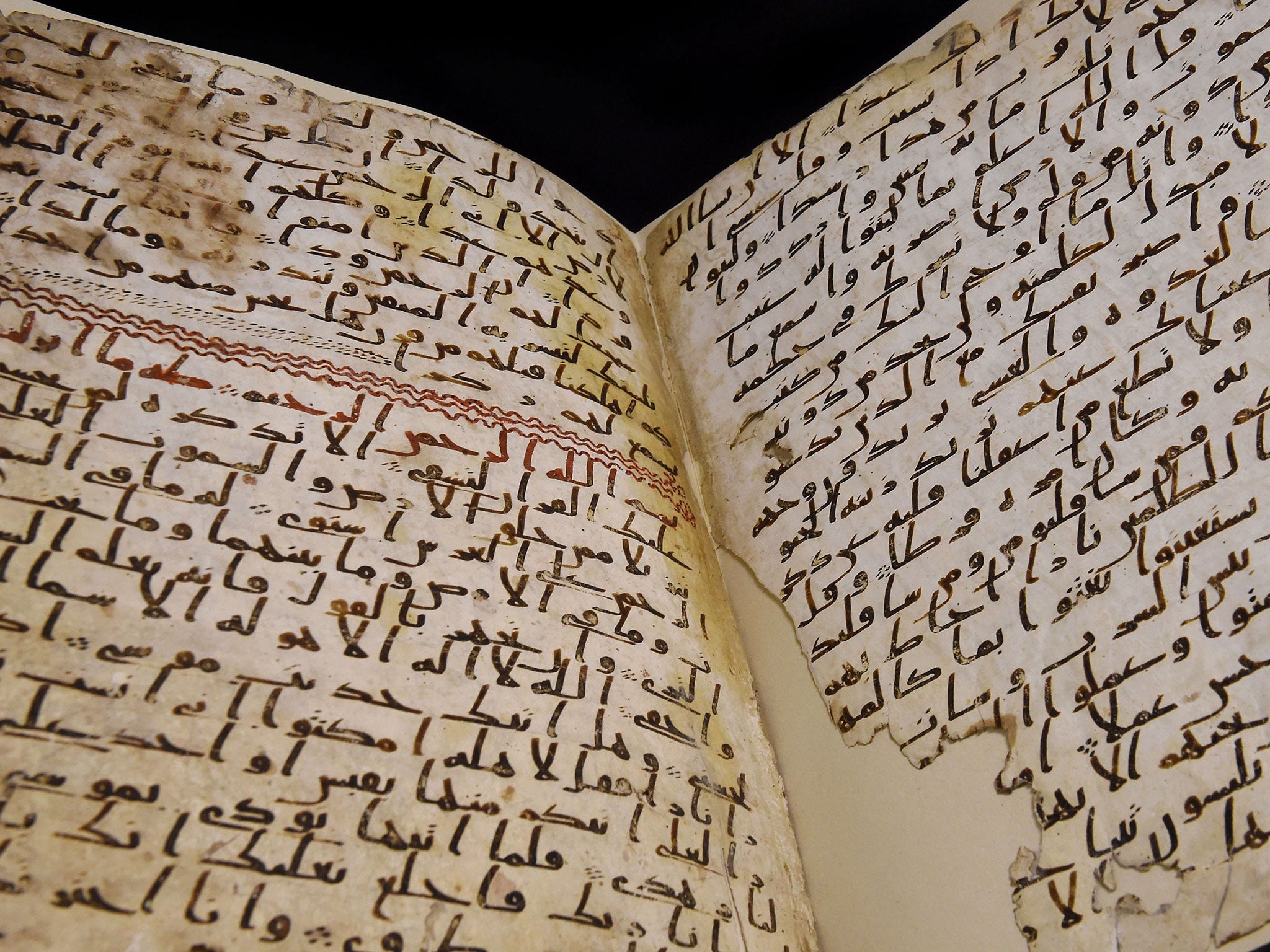Ancient Koran found at Birmingham University may have belonged to Prophet Mohammed’s friend Abu Bakr
1,370-year-old document is likely to have been commisioned by one of the world’s first ever Muslims, experts say

Your support helps us to tell the story
From reproductive rights to climate change to Big Tech, The Independent is on the ground when the story is developing. Whether it's investigating the financials of Elon Musk's pro-Trump PAC or producing our latest documentary, 'The A Word', which shines a light on the American women fighting for reproductive rights, we know how important it is to parse out the facts from the messaging.
At such a critical moment in US history, we need reporters on the ground. Your donation allows us to keep sending journalists to speak to both sides of the story.
The Independent is trusted by Americans across the entire political spectrum. And unlike many other quality news outlets, we choose not to lock Americans out of our reporting and analysis with paywalls. We believe quality journalism should be available to everyone, paid for by those who can afford it.
Your support makes all the difference.An ancient copy of the Koran found at the University of Birmingham may have belonged to Abu Bakr, one of the world’s first ever Muslims.
Radiocarbon dating carried out in July found the fragments to be at least 1,370-years-old, raising the possibility it could be the oldest copy of the Islamic holy book in existence.
Now Jamal bin Huwareib, managing director of the UAE’s Mohammed bin Rashid Al Maktoum Foundation for Islamic studies, has suggested that such an early document could only have been commissioned by a very small number of people – the most likely of them being Abu Bakr.
Abu Bakr is widely thought to be the first person to convert to Islam outside the Prophet Mohammed’s direct family. He served as a friend and trusted advisor to the prophet and became the first ever Muslim caliph in 632, ruling for 27 months until his death in 634AD.
The age of the Birmingham Koran means it is likely to have been created in Islam’s very earliest years, when the world’s global Muslim population was only in the low hundreds.
“I believe this is the Koran of Abu Bakr,” Mr bin Huwareib told BBC News, adding: “It's the most important discovery ever for the Muslim world,"
The quality of the Birmingham Koran’s parchment and handwriting suggests the 200-leaf document could only have been created for an incredibly important figure, he said.
"This version, this collection, this manuscript is the root of Islam, it's the root of the Koran…This will be a revolution in studying Islam,” Mr bin Huwareib went on to say.
Not everybody is so convinced that the Birmingham Koran was Abu Bakr’s personal version on the holy book, however.
David Thomas, Birmingham University's professor of Christianity and Islam, said Mr bin Huwareib’s claims amounted to “a very big leap indeed”, adding that he believes the radio carbon dating suggests the manuscript was actually created around 20 years after the first caliph’s death.
While he concedes that “the person who actually wrote it could well have known the Prophet Muhammad”, Professor Thomas believes too much emphasis has been placed on dating the document on “graphical evidence”, such as handwriting trends.
The Birmingham Koran was found at the city’s university earlier this year after being lost for more than a century.
It is widely considered the most important discovery of an Islamic text for hundreds of years.
Join our commenting forum
Join thought-provoking conversations, follow other Independent readers and see their replies
Comments